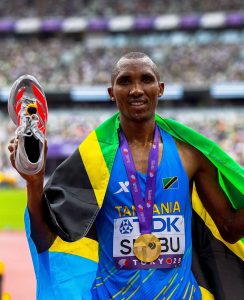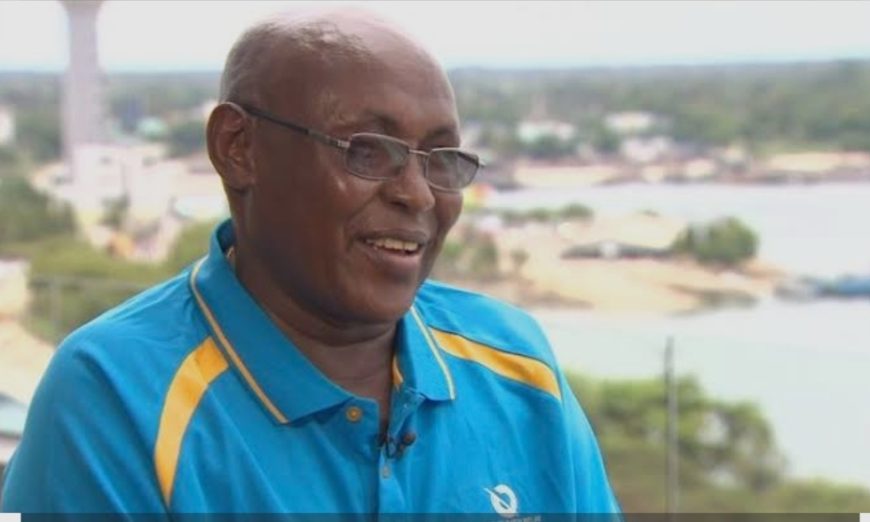On September 15, 2025, Tanzanian marathoner Alphonce Felix Simbu achieved a historic victory at the World Athletics Championships in Tokyo, Japan. In a thrilling photo finish, Simbu edged out Germany’s Amanal Petros by a mere 0.03 seconds, both clocking 2:09:48, to secure Tanzania’s first-ever global title in the marathon. Simbu’s remarkable performance, marks a historic milestone in Tanzanian athletics. His recent achievement is not only a personal triumph but also a defining moment for our country’s sporting identity. In reflecting on this feat, it is worth meditating on the following insights by Filbert Bayi (pictured above), a legendary figure in Tanzanian athletics, whose commentary illuminates both the significance of Simbu’s success and the broader implications for the development of sports in our nation.
………………………………………………………………………….
Today, we gather in celebration of an extraordinary milestone achieved by Alphonce Simbu – an achievement that stands as one of the most historic sporting feats for our nation in this century.
His success has done more than bring pride to Tanzania; it has reshaped our sporting identity, inspired a new generation of athletes, and elevated athletics within the fabric of our national consciousness.
Yet, moments like these should not pass without critical reflection. Simbu’s triumph offers us a unique opportunity to ask an important question:
What is the government’s vision for capitalising on this historic achievement? Specifically, how can we translate this moment of glory into a sustainable plan for investing in and developing athletics for future generations?

As a former athlete, I refrain from commenting on policy in prescriptive terms. However, it is essential to reflect on the path that brought Simbu to this remarkable pinnacle.
His performance was not an accident of chance nor a product of overnight success. Rather, it is the result of years of dedication, discipline, and sacrifice – values that embody the very spirit of athletics.
Simbu’s journey became evident to the world at the Rio 2016 Olympic Games, where he finished 5th in the marathon – a performance that signalled the arrival of a world-class talent.
From that moment onward, he has remained committed to excellence, working tirelessly and sacrificing personal comforts to pursue his dream.
His resilience has now positioned him on the threshold of one final and historic conquest: the gold medal at the Los Angeles 2028 Olympic Games.
But this individual journey also raises a broader issue – the distribution of resources in our sporting sector. Too often, significant funds are directed towards team sports, while individual disciplines such as athletics receive limited investment.
This imbalance must be addressed. If Tanzania is to nurture more talents like Simbu, we must prioritise support for individual athletic pursuits. By doing so, we not only honour the legacy of our athletes but also ensure that future generations are empowered to achieve greatness on the world stage.
Simbu’s success is not only his personal triumph; it is a national lesson. It demonstrates what is possible when talent meets perseverance. But it also reminds us of our responsibility as a nation to provide structures, resources, and opportunities for such brilliance to thrive.
It is not too late to shift our priorities. Let Simbu’s achievement serve as the catalyst for a renewed commitment to athletics – one that celebrates individual excellence and secures Tanzania’s place among the great sporting nations of the world.
…………………………………………………………………………
Filbert Bayi is a Tanzanian athletics legend, former 1500m/mile world record holder, and Olympic silver medalist at the 1980 Moscow Games in the 3000m steeplechase. Widely regarded as one of Africa’s greatest middle-distance runners, he remains a strong advocate for the development of athletics in Tanzania and beyond.










